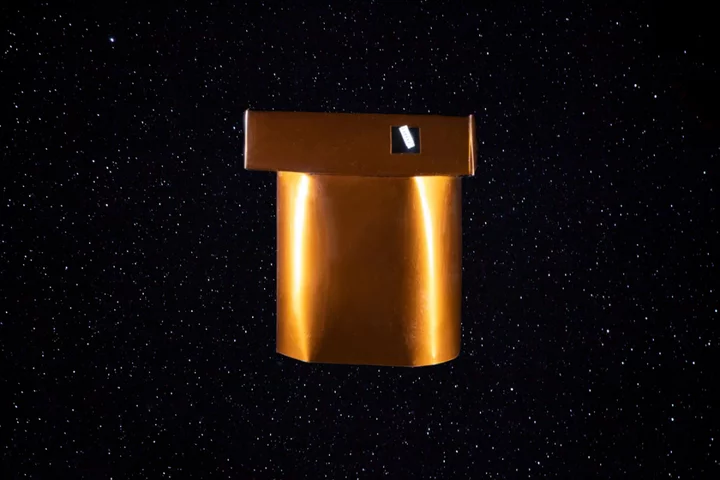SpaceX has launched a new type of zero-fuel propulsion system into orbit, which its creators claim will revolutionise the space industry.
The Quantum Drive engine, built by US startup IVO Ltd, was fitted on a microsatellite that entered orbit aboard SpaceX’s Transporter 9 mission, which lifted off from the Vandenberg Space Force Base in California.
IVO claims that its technology is the world’s first commercially viable pure electric propulsion technology that works in space, drawing “limitless power for propulsion from the Sun”.
It relies on a controversial theory called Quantized Inertia (QI) that challenges Isaac Newton’s Laws of Motion, with some physicists dismissing the technology as impossible.
The QI theory was first proposed in 2007 by physicist Mike McCulloch, who drew on the mysterious properties of quantum mechanics to account for a new understanding of inertia as defined by Newton’s First Law of Motion.
IVO chief executive Richard Mansell said his company performed 100 hours of vacuum chamber testing before the launch, during which the quantum drive produced a small amount of thrust.
“Deploying Quantum Drive into orbit in a Rogue satellite on SpaceX Transporter 9 is a milestone for the future of space propulsion,” Mansell said.
“Quantum Drive’s capability allows Rogue to produce new satellite vehicles with unlimited Delta V.”
A pair of Quantum Drives are fitted to the BARRY-1 cubesat, which will take around one month to settle into its orbit before the next-generation propulsion system is activated in an effort to raise the satellites orbit by 100 kilometres.
If successful, its creators say it will not only rewrite the critical principles of physics, but also form the foundation for a new era of space travel and exploration.
“There are many things that have held back space exploration, one of them of course is power and propulsion,” said Mansell.
“IVO’s quantum drive eliminates this propulsion problem by eliminating the fuel. By taking away the fuel, then you have essentially unlimited thrust.”
Read More‘It’s becoming like an airport’: How SpaceX normalised rocket launches









